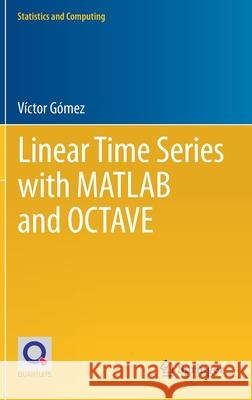Linear Time Series with MATLAB and Octave » książka
topmenu
Linear Time Series with MATLAB and Octave
ISBN-13: 9783030207892 / Angielski / Twarda / 2019 / 339 str.
Linear Time Series with MATLAB and Octave
ISBN-13: 9783030207892 / Angielski / Twarda / 2019 / 339 str.
cena 564,88
(netto: 537,98 VAT: 5%)
Najniższa cena z 30 dni: 539,74
(netto: 537,98 VAT: 5%)
Najniższa cena z 30 dni: 539,74
Termin realizacji zamówienia:
ok. 16-18 dni roboczych.
ok. 16-18 dni roboczych.
Darmowa dostawa!
Kategorie:
Kategorie BISAC:
Wydawca:
Springer
Seria wydawnicza:
Język:
Angielski
ISBN-13:
9783030207892
Rok wydania:
2019
Wydanie:
2019
Numer serii:
000034420
Ilość stron:
339
Waga:
0.68 kg
Wymiary:
23.39 x 15.6 x 2.06
Oprawa:
Twarda
Wolumenów:
01
Dodatkowe informacje:
Wydanie ilustrowane











